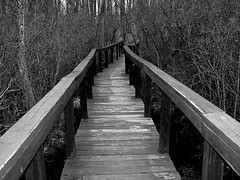 I awoke before dawn to many birds singing, then a beautiful sunrise. An auspicious start for Seeds of Compassion , a 5-Day Gathering in Seattle with his Holiness, the Dalai Lama and a huge community of people who care about the role of compassion in the lives of children. This morning I attended the session on the Science of Compassion, and am currently listening to the live stream of this afternoon’s second science day. Archived materials are being translated into 24 languages. That is a mind-blowing, bridge-building commitment. (The image to the right is a close up of Tim Corey’s work)
I awoke before dawn to many birds singing, then a beautiful sunrise. An auspicious start for Seeds of Compassion , a 5-Day Gathering in Seattle with his Holiness, the Dalai Lama and a huge community of people who care about the role of compassion in the lives of children. This morning I attended the session on the Science of Compassion, and am currently listening to the live stream of this afternoon’s second science day. Archived materials are being translated into 24 languages. That is a mind-blowing, bridge-building commitment. (The image to the right is a close up of Tim Corey’s work)
Experiencing the Dalai Lama
You hear about this remarkable human being — of his warmth, humility and compassion. Even from high in the stadium stands, I felt this. Such humor too… his twinkle twinkled across the stadium. He spoke without pretension, took his time and radiated calm. While I was intellectually engaged with the offering of the panelists (and they came across very compassionate themselves), I found myself just experiencing his Holiness. Sometimes I could not understand with the amplification and echoes, but that didn’t seem to matter. It mattered that I was able to just be there.
Graphic Facilitation at the Seeds of Compassion
I’m also a Seeds volunteer over the next 5 days, helping with the graphic recording of many of the events and welcoming people to put their mark on paper in the Conversation Cafe room where people can debrief and talk with each other about their experiences over the 5 days. Today Patti Dobrowolski and Timothy Corey recorded. You can see photos here. Our full team also includes Keith McCandless, and Steven Wright. I am thrilled to be able to watch and learn from them, as well as provide a contribution to the event WITH them.
Today after the morning event ended, I hung out while Tim and Patti completed their charts. It was wonderful to see people look at them, remark at how it helps them remember what they heard, and their amazement that “they drew this DURING the presentation!” For me as a newbie practitioner of this art, it was immensely useful to see their two different styles and watch their final additions.
I’m looking forward to five days of learning, community and compassion. It seems a fitting entry point to my 50th birthday on April 15th.
 For years I have sponsored friends doing charity walk (like the March of Dimes’
For years I have sponsored friends doing charity walk (like the March of Dimes’ 
